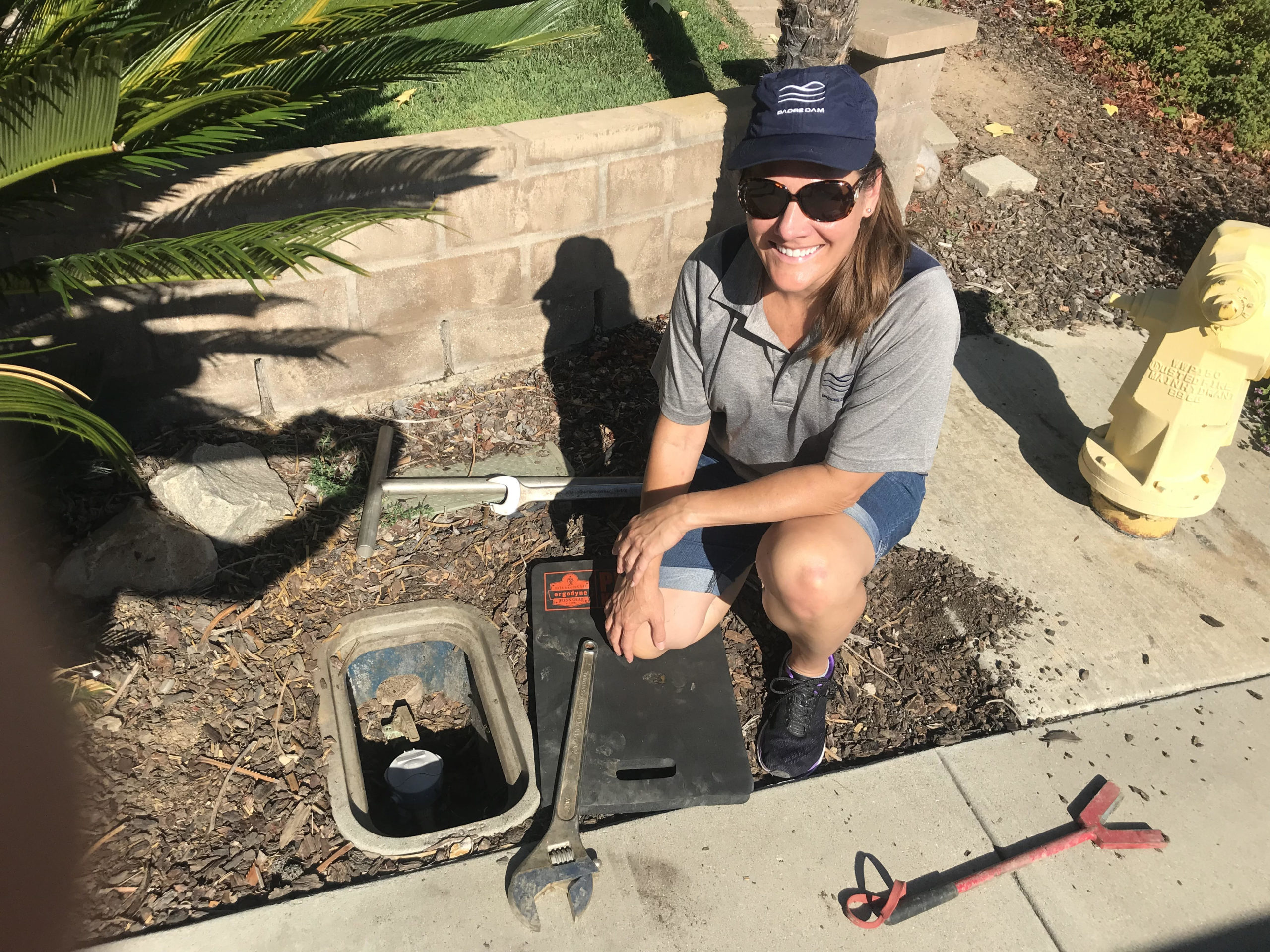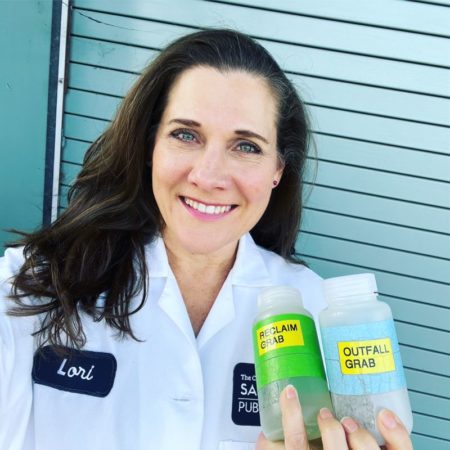
 Her family and friends might have worried she was going a little crazy. Still, at 50, Lori Jones decided to leave her career as an elementary and middle school teacher and try something completely different. After seeing an advertisement for a Women in Water Symposium at Cuyamaca College, she set her course for a new start. She completed her Certificate of Achievement/Specialization in Water and Wastewater from Cuyamaca College and today works as a laboratory technician for the City of San Diego.
Her family and friends might have worried she was going a little crazy. Still, at 50, Lori Jones decided to leave her career as an elementary and middle school teacher and try something completely different. After seeing an advertisement for a Women in Water Symposium at Cuyamaca College, she set her course for a new start. She completed her Certificate of Achievement/Specialization in Water and Wastewater from Cuyamaca College and today works as a laboratory technician for the City of San Diego.
What made you choose to make the change into a completely different career at that time when most would be winding down from lifelong careers?
It was a little crazy and scary to change careers at the young age of 50. Teaching was a lot of fun for me until it wasn’t. Before the pandemic, I began to feel disheartened with teaching. It seemed it was not all about the children anymore. There was a lot of pressure on the students to get high test scores and to fulfill data for all the new technology. It was difficult to keep up and not feel unappreciated.
What set you on a new path into water/wastewater?
What set me on a new path into water/wastewater was literally a chance scroll on Facebook. It was an advertisement for the Women in Water Symposium at Cuyamaca College. At that moment, I was feeling discouraged as a teacher and thought, “Why not?” It changed my career life. There were speakers that intrigued me, and networking with women in the industry was empowering. I enrolled in classes the very next week. Incidentally, I was sometimes the only female in many of the classes.
What did your family and friends say when you told them you planned to change your path into wastewater?
My family and friends thought I was off my rocker when I was still working full-time as a teacher and taking classes at night. I would tell them excitedly that there was this world of water and how important it was. I would spark conversations at the dinner table like, “Do you know where we get our drinking water from and what happens to all this dishwater?” There were times, however, when I second-guessed myself and thought, “What am I doing?!” especially after a long day of teaching and having to sit in class for three hours after that four days a week and homework on the weekends.
Was it hard to break into the water/wastewater industry once you completed your training?
With each class, I learned so much, and I was able to get an Internship with SDCWA. The pandemic threw me (and everybody else) off, but with perseverance, patience, and many job applications later, I was able to get in after about a year.
Now in the field for three years, what do you like best about working in this industry?
What I like most about the industry is how much you can learn on the job, from conferences, from publications, and from networking. I learn something new every day.
What do you enjoy about the work the most? What do you least enjoy about the work?
I work at South Bay Water Reclamation Plant in the Environmental Chemistry Services. I do chemical analyses such as TSS, TDS, Turbidity, BOD, and pH on water samples as they relate to plant processes and permits. What I like least about my job is that some of the samples and the plant is stinky, especially the influent and sludge. What I like most about my job is that the workday goes by very quickly. I feel like I am doing an important job and that I am making a positive difference in the environment.
Have you seen any pitfalls and, by the same token, advantages to being a woman in the water industry?
I have not really noticed any pitfalls to being a woman in the industry. I am treated the same as the guys. On the same token, no real advantages to being a girl either, although I have noticed many guys still open a door for you 🙂
How has CWEA helped you get where you are today in your chosen field?
CWEA has been a great resource for me. I attended the Wake Up to Wastewater at Sea World and learned so much, plus it was a lot of fun. The local events are great for networking. I also appreciate the webinars that are offered. I took several to prepare for the Laboratory Analyst exam.
Any insights you’d like to share with other women who might be considering moving into this field?
If you are considering getting into this industry, there is so much inspiration from other women in the field, from plant operators to supervisors. Most love the opportunity to talk and mentor and help you along the way. Go take the plunge! (Pun intended.)